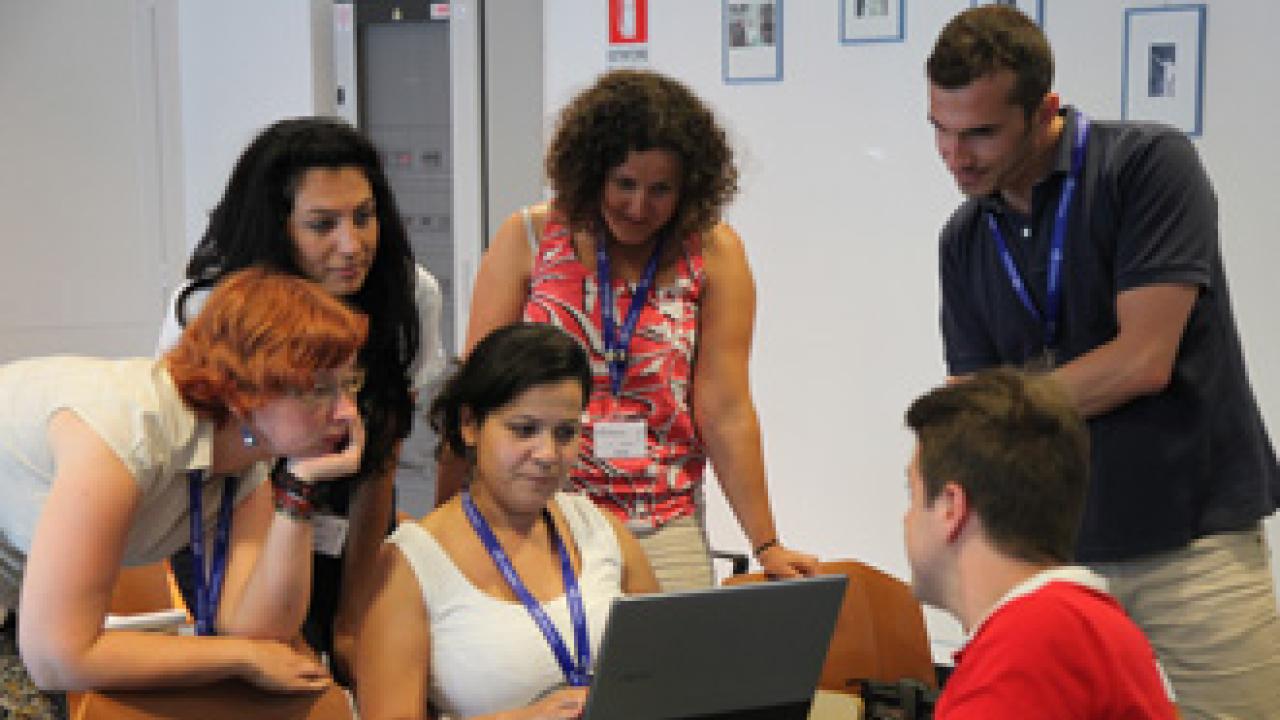
ICTP and the International Atomic Energy Agency (IAEA) have a long history of working together to nurture young professionals, especially from developing countries, engaged in the nuclear sector. Joint ICTP-IAEA schools continue to provide a unique international environment for the participants to learn from experts in the field. The recently held school on Nuclear Energy Management, which ran from 15 July to 2 August and the upcoming school on Nuclear Knowledge Management (12-16 August) are examples of endeavours that impart information about essential aspects of nuclear programmes to professionals working in the nuclear industry, academia and public sector institutions.
Alexander Bychkov, deputy director general at IAEA and head of the Department of Nuclear Energy, who was at ICTP to lecture at theNuclear Energy Management School, says that such schools are essential because there is a steady growth of nuclear technology throughout the world. "Countries that are starting nuclear programmes to provide solutions for energy requirements, medicine and so on need schools like these to train the professionals in a wide range of aspects related to building a successful nuclear programme," he says.
The Nuclear Energy Management School gave the participants insights into different facets of nuclear programmes, including nuclear safety, nuclear standards, nuclear verification, and nuclear law. Bychkov explains that the school focussed not only on the technical aspects of nuclear programmes. "Nuclear managers should have a wide and general understanding of the field," says Bychkov.
Talking about ensuring participation from newcomer countries (countries that have recently adopted nuclear programmes), Bychkov says, "Countries with a long history in nuclear programmes have a 'nuclear culture' and for these countries it is easy to educate new students." He says that the school organizers focussed on training managers from newcomer countries to create a 'nuclear culture' so that they can build up human resources, which is vital for running a successful and secure nuclear programme.
Bychkov says that having the school at ICTP is advantageous for the participants not only because of the international environment it affords but also because of the proximity to the nuclear power plant at Krsko in Slovenia. The participants were taken on a technical tour of the plant as part of the school. "I think the cooperation between IAEA and ICTP will continue to educate professionals from all over the world in best practices in nuclear programmes," adds Bychkov.













